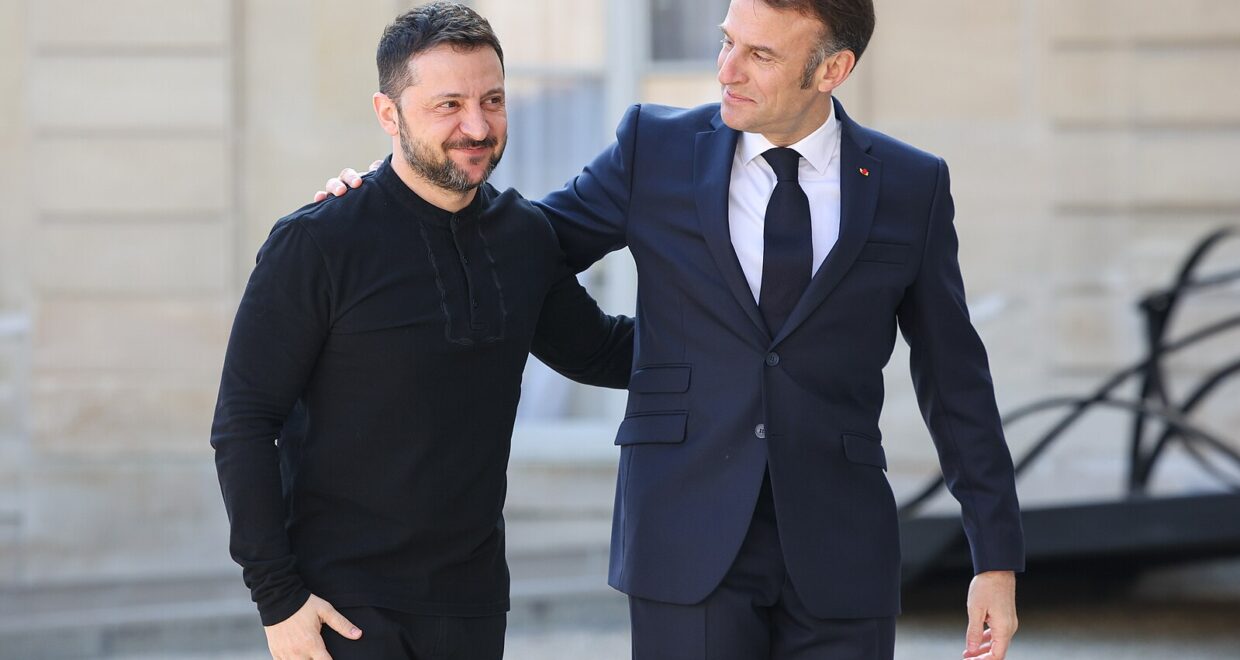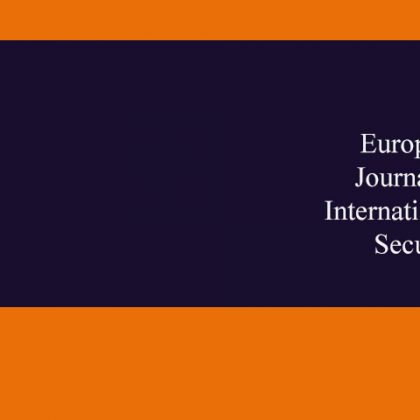French European Diplomacy post-2024 – the Little Entente Revisited?
French president Emmanuel Macron outlined his new vision for French foreign policy in a speech on 5 March 2025. He argued that the Russian invasion of Ukraine posed a threat to all of Europe. Europe had entered ‘a new era’, one in which ‘Europe’s future is not decided in Washington or Moscow.’
Macron’s speech marked a dramatic change in French strategic thinking. As recently as 2021, 13,000 out of 30,000 deployed French troops were stationed on French soil, and only 400 were attached to NATO formations. Is this a sign that France is rebalancing its geopolitical commitments?
An analysis of French diplomatic visits and executive decisions suggests France is rebuilding ties with East-Central European EU members, particularly the Czech Republic, Poland, and Romania. Indeed, one sees an analogue to the interwar Little Entente between Czechoslovakia, Romania, and Yugoslavia fostered by the French Third Republic.
The Little Entente: security with structure
The Little Entente emerged from the negotiations ending World War I. France feared Germany and other defeated states would try to reverse the Treaty of Versailles’s terms. The treaty served a crucial role in French policymaking as a tool to render Germany a ‘handicapped great power’. The treaty recognised several newly-independent states in East-Central Europe, which consequently became targets of German irredentism.
To ensure mutual security, Foreign Minister Stéphane Pichon proposed a ‘cordon sanitaire’. Czechoslovakia already took tentative steps towards regional coordination: it signed a treaty with Yugoslavia in 1920. The alliance’s goals were defensive: three of the treaty’s six articles concerned joint defence in the event of Hungarian attack. An alliance with Romania followed a year later. The two agreements inaugurated a partnership cemented by common fear of the revanchist powers. However, these partnerships lacked an institutional framework and the accompanying guarantees.
France built on extant diplomatic foundations by forging alliances with the states that owed their existence to the Treaty of Versailles. Between 1924 and 1927, France signed treaties with Czechoslovakia, Romania, and Yugoslavia. The documents explicitly reference the need to prevent ‘any infraction of the peace, the maintenance of which is necessary for the political stability and economic restoration of Europe.’
The European restoration which the signatories pledged to uphold was the order established under the Treaty of Versailles. French diplomacy impelled the East-Central European states to institutionalise their relationship: Czechoslovakia, Romania and Yugoslavia organised a Permanent Council of the Little Entente by 1933, formalising the partnership. The Permanent Council contained an economic component and specified that the three states’ foreign policies would be ‘where possible, unified’.
France underwrote the Little Entente through military aid. In Czechoslovakia, French engineers inspected its border fortifications which played a similar role to France’s Maginot line. In 1936, a military mission arrived to train Czechoslovak officers and engineers. France sought an expansion of the Little Entente to include its long-time ally Poland. Poland hosted a French military mission and received loans of 400 million francs in 1921 and 1924. General Gauché, head of French intelligence, envisioned a ‘Rome-Belgrade-Budapest-Warsaw’ alignment blocking German ambitions. If implemented, the plan would have linked Poland to the Little Entente and significantly increased the bloc’s defensive capabilities.
With this network of alliances, military missions, and aid, the Third Republic constructed a barrier to Soviet and German expansionism.
French shuttle diplomacy: a new cordon sanitaire
Since 2024, France has appeared to replicate the Little Entente’s diplomatic and military ties through renewed assertiveness in East-Central Europe. During President Macron’s March 2024 visit to the Czech Republic, he spoke of both countries’ ‘numerous joint actions…structured as different coalitions’. By mentioning different coalitions, the French president expressed his support for more state-level cooperation between France and eastern EU members. President Macron’s appeal evokes the Little Entente’s Permanent Council. Indeed, the president announced a ‘strategic partnership plan of action,’ a framework which potentially could be used for expanding Franco-Czech relations.
France has sought a similar partnership with Romania. Reciprocal visits between the French and Romanian Presidents took place in early 2025. Speaking in Bucharest, President Macron warned that continued Russian aggression against Ukraine meant ‘Moldova and eventually even Romania would be at risk’. French troops deployed to Romania increased from 500 to 5000 after the visits. The discussions and President Macron’s concerns about Russian intentions imply that Romania holds an important place in French defence plans. This readiness to participate in regional diplomacy marked a change from President Macron’s 2017 ‘multi-speed Europe’ speech, which proposed different levels of European integration.
France is not only rebuilding the Little Entente but expanding its informal networks to other neighbouring states. In a December 2024 visit to Warsaw, President Macron commented on a Franco-Polish ‘fraternity of arms’ dating back over a century. This links the president’s present-day visit to interwar diplomacy and underscores a French geostrategic vision encompassing Polish security. Four months later, Poland expressly welcomed the potential deployment of French nuclear arms.
Around the same time, as a sign of diplomatic coordination Poland supported a French proposal concerning the European Defence Fund. In May, France and Poland signed a treaty binding them to cooperation under NATO’s Article 5. Both countries reiterated their pledge to defend each other and committed to greater military interoperability. These steps go beyond the interwar military missions and staff visits, signifying official cooperation between two major European states.
French diplomatic, political and military activities all point to a coalescing Paris-led bloc centred on East-Central Europe. These ambitious plans enjoy popular domestic approval: a 2025 poll revealed supermajority support for the European Defence Community among French respondents. A French-led coalition could become a real possibility within the NATO and EU structures.
A century ago, France convinced the East-Central European successor states to preserve their gains in an alliance. Through personal diplomacy and security coordination, President Macron is rebuilding historical alliances.





